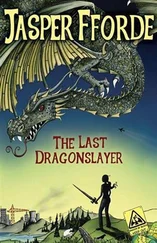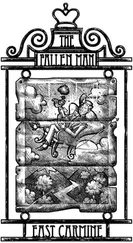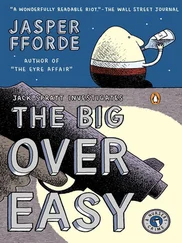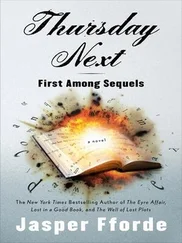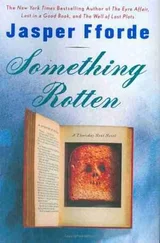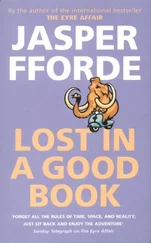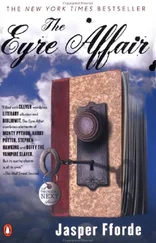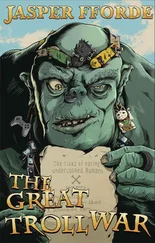I laughed out loud. Not simply at the bold invention of my mind, but the clarity . If this was what dreaming was like, then I had missed a phenomenon of considerable entertainment and distraction. Sure, the extra energy spent in their subconscious creation would require additional pounds at Slumberdown, but from what I could see, it would be worth it. This was a new, exciting reality.
This was escape.
I inhaled deeply and the sweet scent of Summer filled my lungs, the subtle odour of warm grass and meadowsweet. I looked around to see if Clytemnestra wasn’t also somewhere about, hanging over me with her dagger, and was relieved to find that she wasn’t. But something else was , something that had been predicted along with the oak and the boulders.
The blue Buick.
The car was from the more reserved and elegant era of American automotive design, before the dominance of fins and chrome. It wasn’t new, and far from pristine. Rust speckled the chrome bumpers, poorly repaired crash damage had wrinkled the offside front wing and the driver’s window was jammed half down and discoloured milky-white. Next to the Buick a picnic was laid out on a red blanket, a bottle of wine in a cooler, a folding chair. Beyond the car, about a half-mile away, I could see, sitting quite by itself on the unceasing carpet of green a Morpheleum, a temple to the god Morpheus. Old, abandoned, but looking incongruous, yet somehow safe.
I could make an intelligent guess as to how these two dream scenarios had been created in my mind. First of a woman whom I’d met and liked and mixed with her paintings and my holidays in the Gower, and secondly, the dream I had been told about, mixed with the inescapable omniscience of Don Hector and HiberTech. I already had the broad parameters; my mind had filled in the rest like so much builder’s plaster. It was quite a feat – no wonder dreams burned energy.
I was about to step from the boulders when I stopped. Birgitta, Moody and Porter Lloyd had all warned me: stay on the rocks.
Intrigued, I stepped down to one of the lower stones and prodded the soil with an inquisitive toe. Almost immediately a hand shot out of the ground and closed around my ankle with a vice-like grip. I cried out in horror, swayed and almost fell off the rocks, then recovered and pulled back as hard as I could, my fingernails splitting and cracking where I grasped the stone. And then, after we had tussled for a few seconds the hand abruptly let go and swiftly sank from view while I retreated to the highest point of the rock-pile. Notwithstanding the fact that I knew that none of this was real, I sat shaking, breathing in short gasps. I then noticed that there were more hands – dozens if not hundreds – and watched with an increasing sense of horror as they moved slowly around the tree, as attackers might circle a hopeless last defence. Occasionally they would halt to fuss with a tussock of grass, sniff the air and occasionally squabble before carrying on with their patrol. I knew now what Moody had meant when he spoke in horrified tones of the hands .
No, wait, back up a moment. Upon reflection, I couldn’t have known what Moody had been frightened of. He’d only made mention of ‘hands out to get him’. I must have simply invented the scenario to fit in with the trees and the rocks. The outline was the same, the dream was different.
And then, quite suddenly, a woman’s sharp voice from behind me cut into my trail of thought, and that was strange, because there’d been no one there when I last looked.
‘We know of a remote farm in Lincolnshire,’ came the woman’s voice in a slow, persuasive tone, ‘where Mrs Buckley lives. Every July, peas grow there.’
I turned. There was a woman standing next to the Buick, and she was staring at me with a folksy smile, had grey hair tied up in a bun and was wearing a white blouse and a red dress around which was tied a kitchen apron. It was Mrs Nesbit, as she appeared in the endless corporate logos, film and TV commercials – but not the current Mrs Nesbit actress: this was a much younger Zsazsa LeChat, from eight Mrs Nesbits ago. She looked as though she was unaware of her surroundings, and there was a sense of shimmering otherness about her – as though she were not part of the dream, but somehow trespassing within it.
I’d added a younger Zsazsa to the dream, too.
‘Hello,’ I said.
There was a short blast of static and she spoke again . But although the voice appeared to be coming from Mrs Nesbit, the words didn’t match the movements of her mouth. She was the one from where the voice was emerging, but she wasn’t the one speaking. It was Mrs Nesbit, and it wasn’t , just as I was both myself and Don Hector, all at the same time.
‘Deputy Worthing?’ she said, and her voice seemed to sear a hole into my mind like a red-hot needle. I felt myself lift out of the Dreamstate as the pain brought me perilously close to waking, and for a moment I could see the faint outline of Clytemnestra, the open door to the living room and the bedside clock before I fell back into the Dreamstate.
‘Steady, Charlie, we need you asleep. Now: who do you think you are?’
‘I think I’m… Don Hector.’
‘Presumptuous of you, wouldn’t you say? Describe the Buick.’
‘It’s blue, the colour of the sky,’ I said, ‘it’s not new and has various damaged parts, a bit of rust, an AA badge on the grille, off kilter.’
Mrs Nesbit smiled again. She was looking at me, but her eyes were unseeing. What I was witnessing, she could not. She seemed more brightly coloured than the surroundings, and had a thin sparkly aura that ran all around her.
‘Tell me about your childhood.’
‘Pool from birth,’ I said, ‘insurance write-off. I wasn’t adopted on account of my noggin and biting off Gary Findlay’s ear.’
‘Not you – the other you. I want to know about Don Hector.’
‘Nothing,’ I said, ‘I’m only dreaming I’m him.’
But there was something, as there was when I was Birgitta’s husband. Vague, nebulous, but there, crouching in the back of my mind like a perching osprey: on a kid’s trike when I was very young, going as fast as I could on the carpeted corridor of a large country house, trying to escape something – grief, I think.
‘I was on a trike,’ I said. ‘It’s a week past Springrise, and I can recall a sense of maternal absence. I can feel the loss.’
And I could, an angry lump of emptiness that wouldn’t leave my chest. The same sort of lump I felt at the Pool when prospective parents passed unblinking on their hurried way to the other kids, the ones not made distinctly and beautifully unique by a touch of asymmetry.
‘Good – you’re in. Now listen carefully. Is there a cylinder anywhere close by?’
‘What sort of cylinder?’
‘A wax cylinder.’
‘With music on it? There’s lots in the apartment.’
‘No; in the dream. We need the cylinder – and you need to find it. Explore the recesses of Don Hector’s mind.’
I looked around. The only thing in sight other than the oak tree and the picnic and the car was the Morpheleum, sitting on the horizon.
‘There’s a temple to Morpheus. About half a mile away.’
‘Good. Try and get there. Using the Buick offers the best chance, we’ve learned.’
‘You’ve tried it?’
‘In a manner of speaking.’
I looked at the empty space between myself and the car. It was barely ten paces away, but as I watched, a hand surfaced momentarily between myself and the Buick, then sank out of sight.
‘I can’t,’ I said.
‘The hands?’
‘Yes, the hands. They’ll get me.’
Читать дальше




